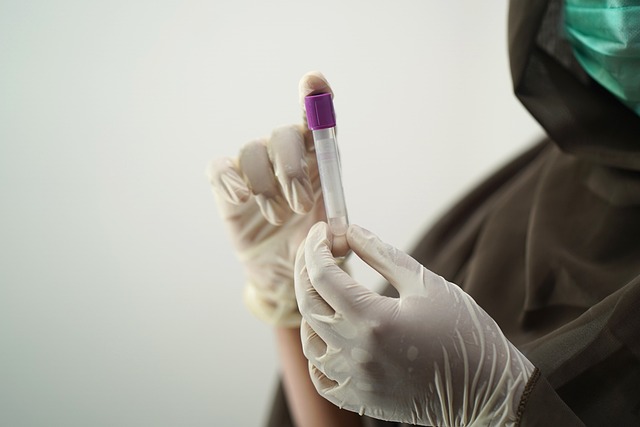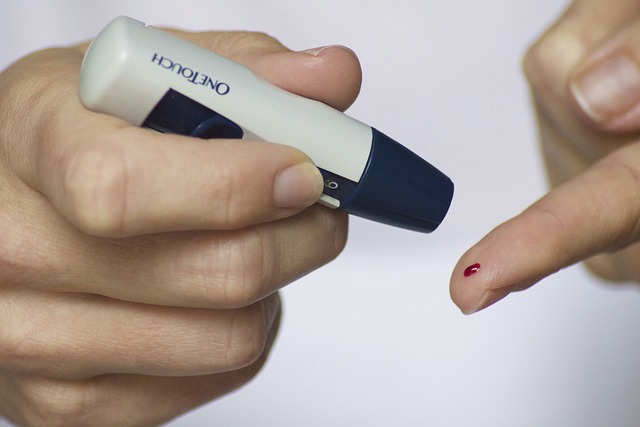The UK's advanced thyroid blood test plays a critical role in accurately diagnosing and managing Vitamin B12 deficiency. This comprehensive test, used by the NHS, measures key hormones alongside B12 markers, including MMA and homocysteine levels, providing a nuanced assessment of thyroid function and its impact on overall health. The UK Advanced Thyroid Blood Test's inclusion in the healthcare system is particularly important given the country's unique dietary patterns and genetic factors that can affect B12 absorption. It serves as both a diagnostic tool for initial evaluation and a monitoring mechanism for tracking disease progression and treatment efficacy, especially in cases where supplementation or conditions like pernicious anaemia are involved. With the increasing incidence of B12 deficiency, particularly among dietary-restricted individuals, this test facilitates early detection and intervention, preventing long-term health issues associated with its deficiency. The UK Advanced Thyroid Blood Test is indispensable for optimising patient care, improving quality of life, and ensuring timely treatment adjustments as needed.
In the UK, maintaining optimal health involves a keen understanding of nutrient levels within the body. Vitamin B12, an essential vitamin for cellular function and nerve health, can be elusive when deficient. This article illuminates the pivotal role of advanced thyroid blood tests in detecting such deficiencies. We delve into the mechanics of these tests, offering clarity on how they function to measure B12 levels accurately. Furthermore, we guide readers through interpreting their results within the UK healthcare context, ensuring a comprehensive grasp of what low B12 indicates for their overall well-being.
- Decoding Vitamin B12 Deficiency: The Role of Advanced Thyroid Blood Tests in the UK
- Understanding the Mechanics: How Blood Tests Detect Vitamin B12 Levels in the Body
- Interpreting Your Results: What Low B12 on an Advanced Thyroid Blood Test Means for Your Health in the UK Context
Decoding Vitamin B12 Deficiency: The Role of Advanced Thyroid Blood Tests in the UK

In the UK, the detection of Vitamin B12 deficiency is a critical health concern that can be effectively addressed through advanced thyroid blood tests. These sophisticated tests are pivotal in identifying subtle changes in B12 levels, which are often overlooked by standard tests. The UK’s National Health Service (NHS) employs these advanced tests to ensure accurate diagnosis and timely treatment for patients at risk of or suffering from B12 deficiency. These tests measure specific thyroid hormones and Vitamin B12 markers, providing a comprehensive picture of thyroid function and its impact on overall health. The inclusion of additional markers such as methylmalonic acid (MMA) and homocysteine alongside traditional serum B12 measurements allows for a more nuanced understanding of a patient’s condition, leading to better-informed medical decisions. This approach is particularly beneficial in the UK, where dietary habits and genetic factors can influence B12 absorption and utilisation.
The utility of advanced thyroid blood tests extends beyond the diagnosis; they are instrumental in monitoring the progression of B12 deficiency and assessing the efficacy of treatment plans. For those on B12 supplementation or with conditions like pernicious anaemia, regular testing is essential to maintain optimal levels of this vital nutrient. The precision of these tests enables healthcare professionals to tailor treatment to individual needs, optimising patient outcomes and quality of life. In the UK, where the prevalence of B12 deficiency is on the rise, especially among vegetarians and vegans or those with gastrointestinal disorders, access to such advanced diagnostic tools is increasingly important. These tests are not only a cornerstone in managing existing conditions but also in preventing the long-term complications associated with undiagnosed or untreated B12 deficiency.
Understanding the Mechanics: How Blood Tests Detect Vitamin B12 Levels in the Body

In the UK, the detection of Vitamin B12 deficiency is a critical aspect of maintaining health, particularly for those with thyroid disorders or dietary restrictions. The UK Advanced Thyroid Blood Test is a comprehensive diagnostic tool that includes measurements of Vitamin B12 levels among other thyroid hormones and markers. This test is pivotal in understanding the body’s nutritional status as Vitamin B12 plays a significant role in red blood cell formation, DNA synthesis, and neurological function.
To ascertain Vitamin B12 levels, a blood sample is collected from the patient, typically from an arm vein. The sample is then sent to a laboratory equipped with sophisticated instruments capable of measuring the concentration of Vitamin B12 in picomoles per litre (pmol/L). The test measures methylmalonic acid and homocysteine levels as well, which can indirectly indicate a B12 deficiency. These measurements enable healthcare professionals to diagnose deficiencies with accuracy, guiding treatment decisions for patients who may require Vitamin B12 supplementation or dietary modifications. The UK Advanced Thyroid Blood Test, therefore, serves as an invaluable diagnostic tool, facilitating early detection and intervention in the management of Vitamin B12 levels within the body’s ecosystem.
Interpreting Your Results: What Low B12 on an Advanced Thyroid Blood Test Means for Your Health in the UK Context

In the context of UK healthcare, an advanced thyroid blood test is a critical diagnostic tool for assessing thyroid function and identifying nutritional deficiencies such as Vitamin B12. If your results indicate low levels of B12, it’s a signal that your body may not be absorbing this vital vitamin effectively. B12 is essential for the production of red blood cells and the proper functioning of the nervous system. In the UK, dietary intake is often scrutinised first as B12 is naturally found in animal products; therefore, vegetarians and vegans are at a higher risk of deficiency. However, low B12 levels can also occur due to absorption issues, which might be influenced by factors such as ageing, certain medications, or gastrointestinal conditions like Crohn’s disease or celiac disease. Interpreting these results is not a process to be taken lightly, as B12 deficiency can lead to anaemia and neurological problems if left untreated. It’s imperative to consult with a healthcare professional who can provide personalised advice and treatment options, which may include dietary changes, oral supplementation, or in some cases, B12 injections to rectify the deficiency. The UK’s National Health Service (NHS) provides guidance on managing such conditions, emphasising the importance of early detection and intervention through regular health screenings and monitoring.
In conclusion, the detection of Vitamin B12 deficiency via advanced thyroid blood tests has become a critical component in maintaining health within the UK population. This article has elucidated the significance of these tests, detailing their role, mechanics, and interpretation of results. For those concerned about their B12 levels or at risk due to dietary habits or certain medical conditions, understanding one’s own blood test outcomes is key. With accessible and reliable testing through the UK’s advanced thyroid blood tests, individuals can take proactive steps towards addressing deficiencies and improving overall well-being. It is clear that such diagnostic tools play an indispensable part in early diagnosis and management of B12 deficiency, ensuring better health outcomes for a wide range of patients across the UK.
